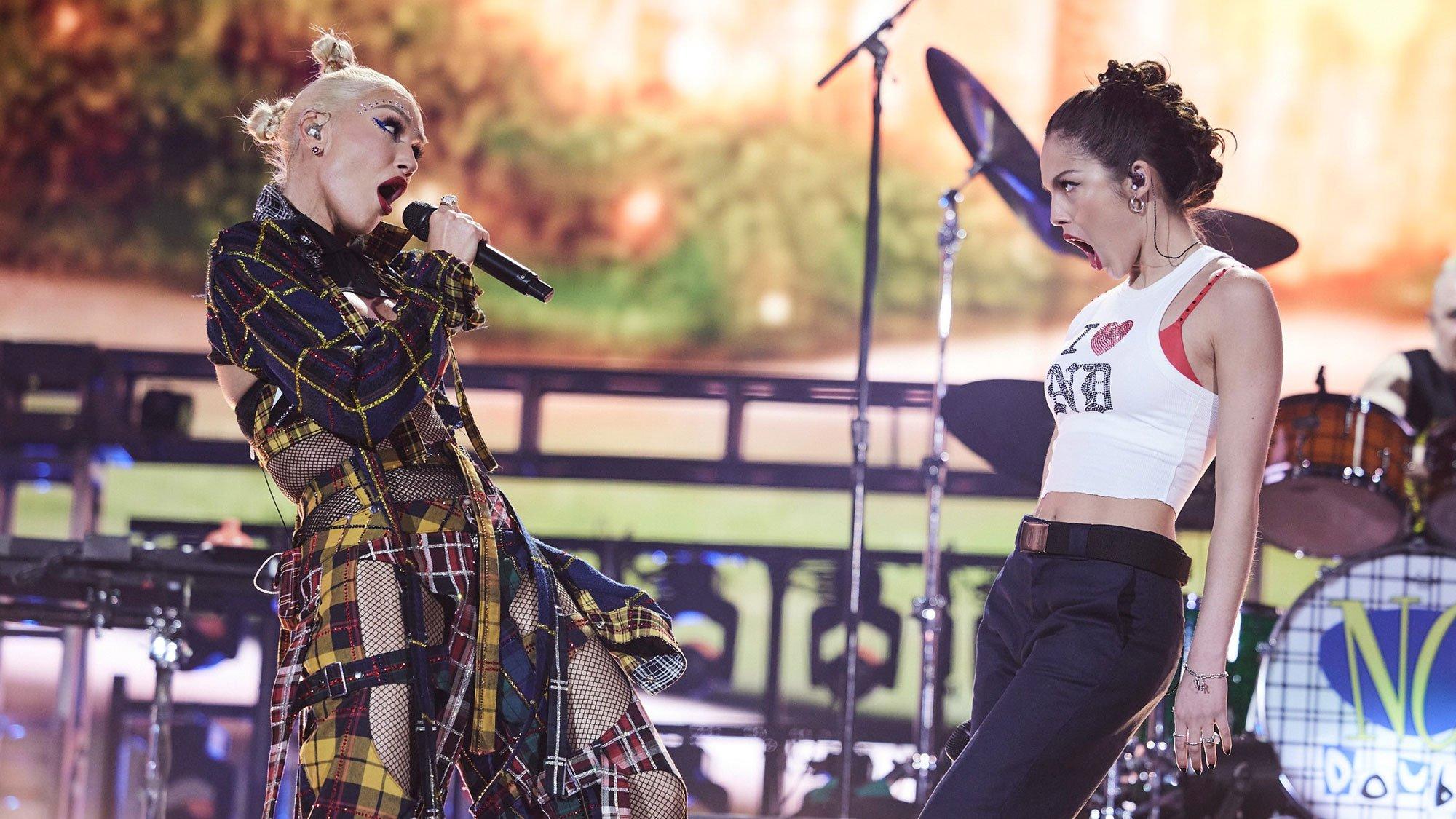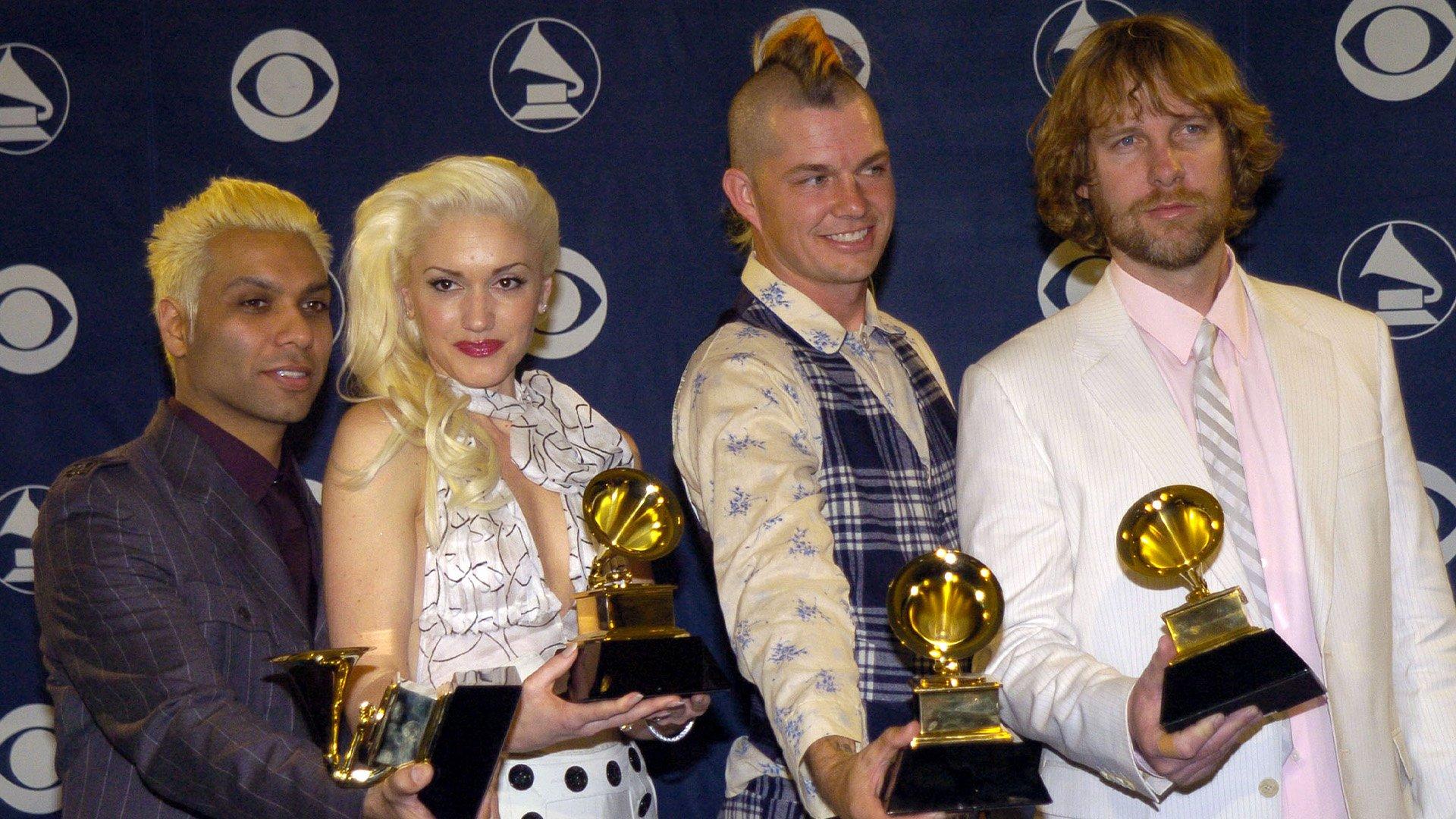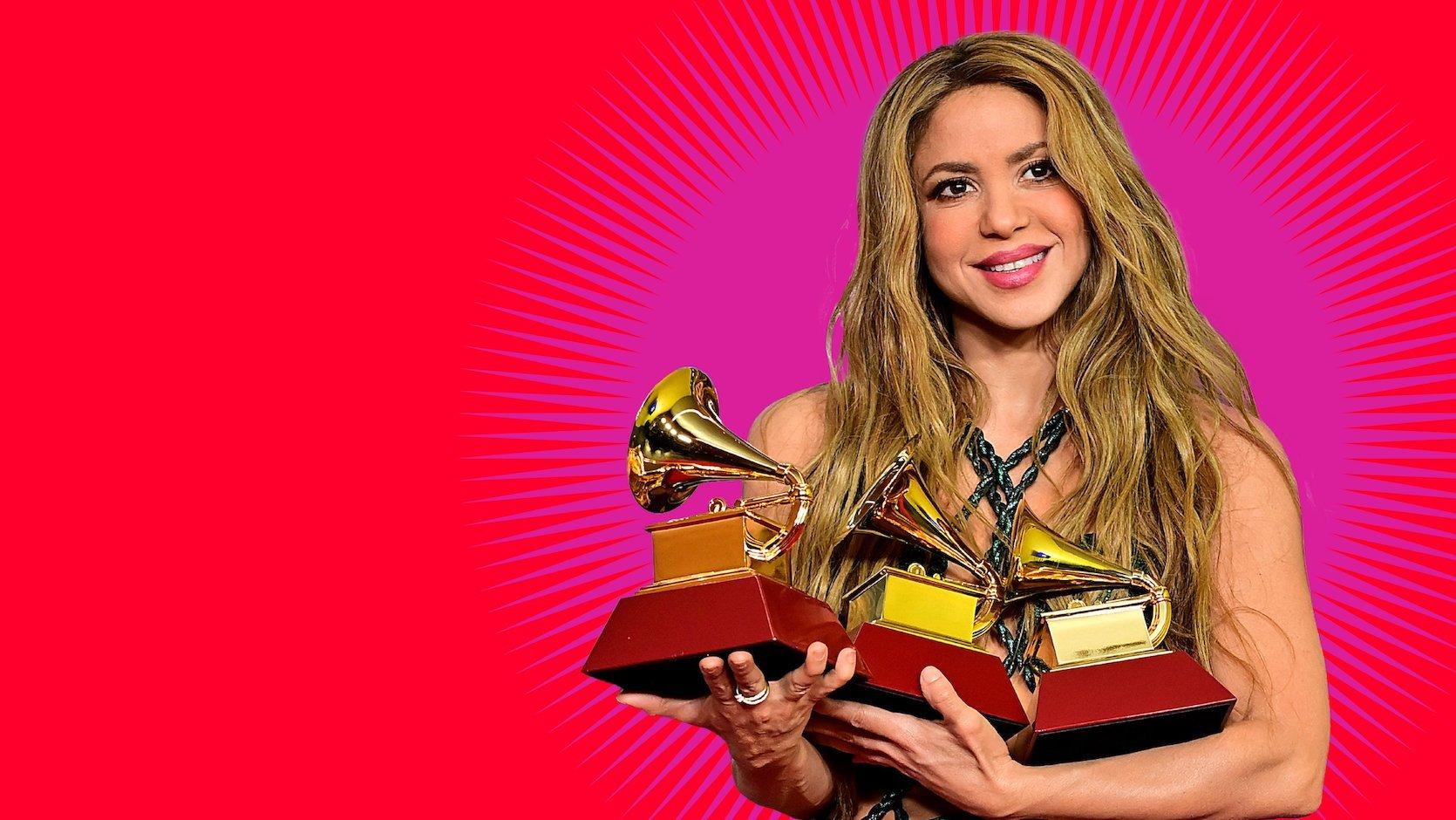On the first Saturday of Coachella, No Doubt made a striking comeback on the festival's main stage for their first performance together in nine years.
Originating from Anaheim, California in 1986, the band is celebrated for their eclectic sound that defies easy categorization — from the ska-punk vibrancy of their early days to the polished pop anthems that later defined their career.
Their big breakthrough album, Tragic Kingdom, was released in 1995 and propelled them to fame with hits like "Don't Speak" and "Just a Girl," which dominated the Billboard charts for 16 weeks.
Featuring all original members — Gwen Stefani, guitarist Tom Dumont, bassist Tony Kanal, and drummer Adrian Young — No Doubt's Coachella performance was a tribute to their iconic past and a reminder of their beloved eccentricity.
The standout set was filled with unbeatable stage presence, surprise guests, and showcased the band's timeless appeal nearly four decades into their career. Known for blending introspective brooding with a uniquely sardonic edge, the band has significantly influenced a generation of complex female artistry. Highlights from the performance, including Stefani's magnetic stage presence, heartfelt interactions with fans, and a surprise appearance by Olivia Rodrigo, underscore their palpable appeal and lasting influence on contemporary music.
Read on to discover five key highlights from their hotly anticipated return at Coachella during their 'Weekend 1' set:
Gen Z And OG Fans United As One
As fans converged on Coachella's main stage for No Doubt's set, the diversity of the audience was immediately apparent. Younger fans, clad in social media-ready outfits inspired by Gwen Stefani’s iconic style (some even recreating her most iconic looks) braved the evening's brisk winds.
Despite challenges, the alleged bad modern concert etiquette was not apparent, especially after Stefani's call for a return to old-school concert vibes before performing a “Simple Kind of Life.”
“Let’s do this old school!” Stefani said as she confessed missing the days when fans would belt out all the lyrics at the top of their lungs without much care in the world. It was a sentiment that quickly resonated through the audience and a moment that not only bridged generational divides but also highlighted No Doubt's broad and enduring appeal.
The Night Was Full Of Nostalgia
Outside of the fact that frontwoman Stefani is allergic to aging, for a group returning after nine years performing together, No Doubt’s stage presence was just as powerful as their past, dynamic performances.
“There’s no f—king comparison!” Gwen Stefani roared during “Underneath it All,” capturing the intensity of the moment as she dropped to her knees, rhinestones sparkling on her eyebrows and a smile breaking through.
Read more: GRAMMY Rewind: Watch No Doubt Accept Their GRAMMY Award For “Underneath It All” In 2004
The band's passion burned just as brightly when they were playing local college gigs in Orange County. There was no sign of awkwardness or a single misstep as Stefani showcased the same brilliance of her early days as a burgeoning musician.
She shared the spotlight seamlessly. As Dumont delivered a guitar solo during “Different People,” Stefani playfully skipped and ran across the expansive stage, never missing a note.
No Doubt has always transcended nostalgia, yet they embraced their history at Coachella. Stefani dressed to the nines in a plaid, avant-garde outfit while background videos played personal and rehearsal footage from the '90s, evoking a simpler time for the group. Stefani appeared barefaced in a plain white tee, bouncing around a beat up truck in a video that explained the band's origins and showed the magnetic charisma that manifested a star turned supernova.
Olivia Rodrigo Made A Surprise Appearance
Right before Stefani took a brief water break, she flashed a mysterious smirk to the crowd.
As the introspective track “Bathwater” thrummed to life, a brunette donning a glittering “I [love] ND” tank top emerged, her face turned from the audience. The murmurs quickly escalated into screams, particularly from the younger fans, signaling the arrival of pop starlet Olivia Rodrigo. Matching Stefani in energy and presence, Rodrigo proved a formidable presence on stage, trading verses and singing in duet through the chorus, their performance culminating in a sweet embrace.
No Doubt’s influence on Rodrigo's music is palpable. After all, tracks like Rodrigo’s “Get Him Back!” and No Doubt’s “Bathwater” are cut from the same mascara-stained cloth — each with a poetic, vengeful twist. They were just girls! Living in captivity! The revenge? Being able to put into song the diabolical conditions of womanhood, while allowing themselves to truly feel — whether it be anger, delusion, or plain pettiness.
The Band Members Have A Bond
No Doubt’s historic return to the stage elevated the entirety of the Coachella-going experience, setting a standard and outshining the majority of the other acts. Throughout their performance, the admiration they had for one another became increasingly evident.
From Stefani frequently calling out “Tony! Tony!” to (Tony) Kanal during the set’s adlibs to the end of their set when the group remained locked in a hug for several moments, the group was clearly overjoyed to be back together again. Before exiting the stage, Stefani leaped onto the back of Young while she excitedly kicked her feet, as though in protest of having to leave.
A Coachella backstage supervisor working onsite during their rehearsals candidly confessed that he was taken by the band's natural chemistry. During soundcheck, he stated they were so intrinsically confident and overjoyed about their performance it seemed as though they had never stopped performing with one another.
They Showed Deep Gratitude For Their Fans
There was nothing but gratitude on display from each and every member during the festival set. After almost every other song Stefani would belt an “I love you!” to the crowd.
During an experimental instrumental-only tribute to ska-pop, Kanal ran across the stage with a huge smile, at-the-ready to riff back-to-back with members of the group.
“Indio, put your f—king hands up!” Stefani commanded the crowd as they gleefully complied. Then, as smoke filled the air under the brilliantly shining crescent moon, she celebrated the group coming together for the first time in nine years.
“Isn’t this so crazy?” Stefani yelped during her performance for “It’s My Life.” “This is our life! Singing I love you!”
It was an epic return for No Doubt as a band and Stefani as their fierce leader, showing up to Coachella naturally, just a girl. A girl who loves to sing, rile up the audience in a fierce sing-along, and remind everyone that self-acceptance is all their music has ever been about.
10 Must-See Artists At Coachella 2024: Skepta, The Last Dinner Party, Mdou Moctar, Cimafunk & More




